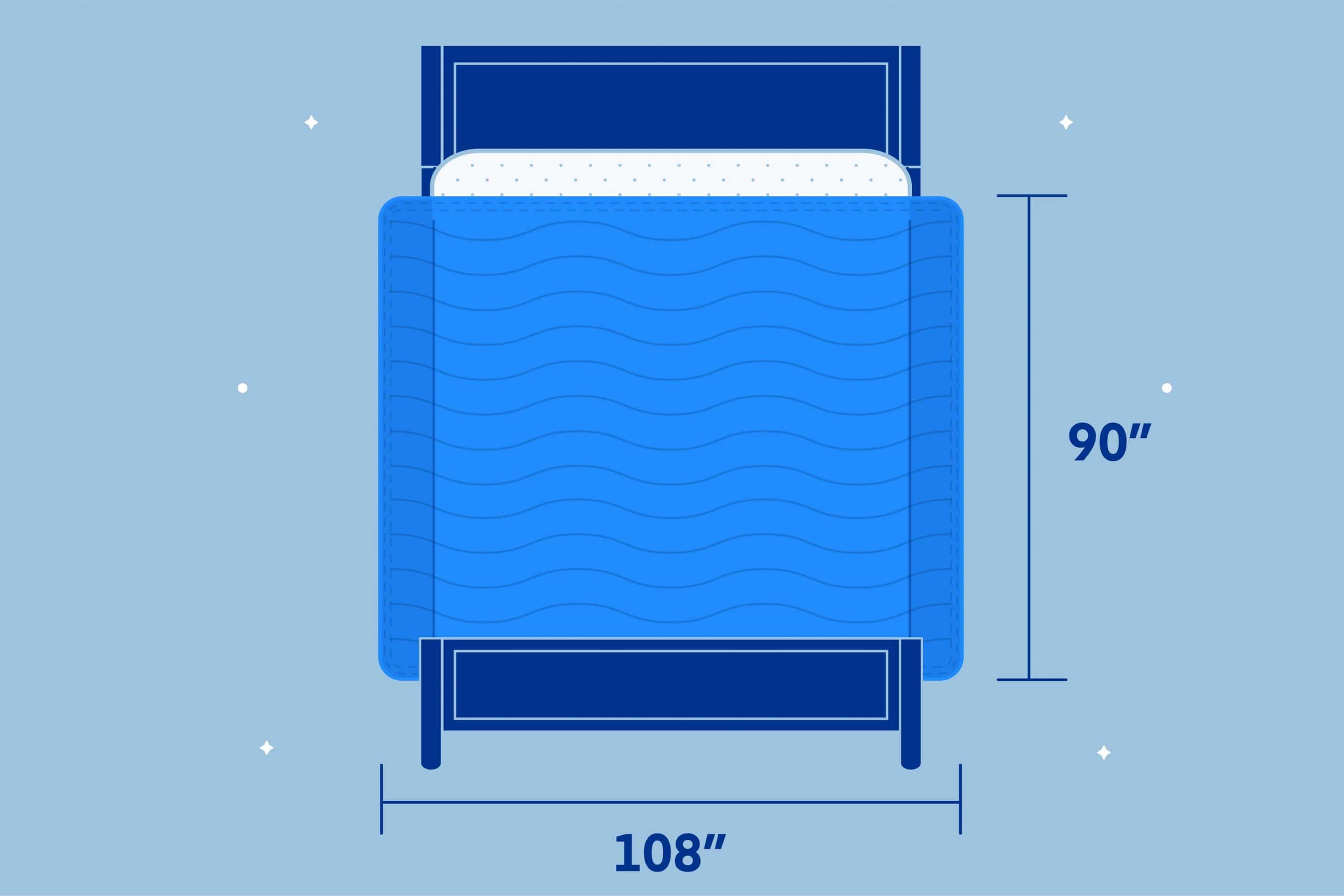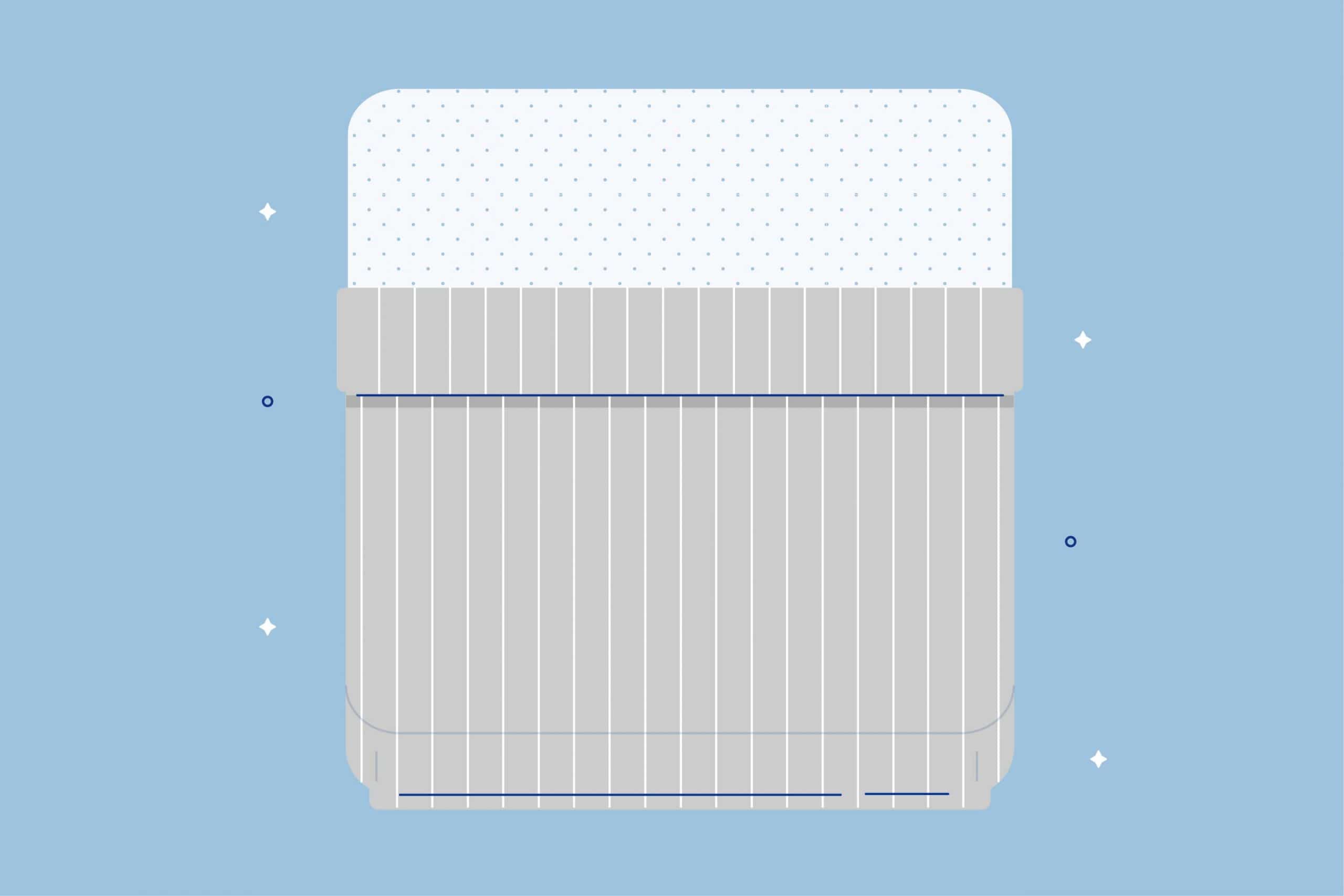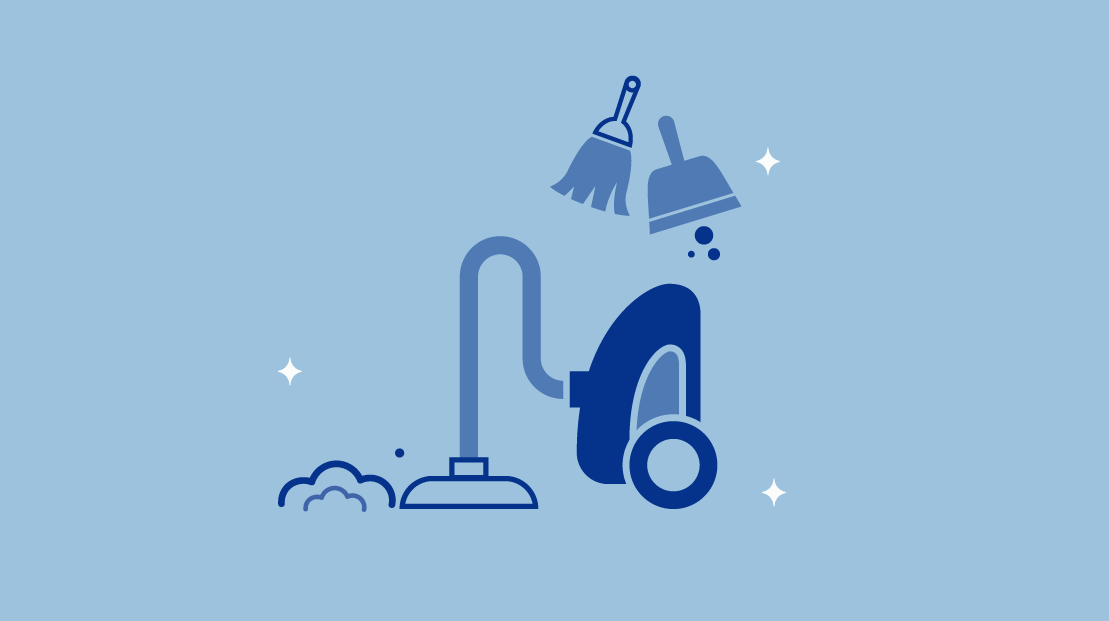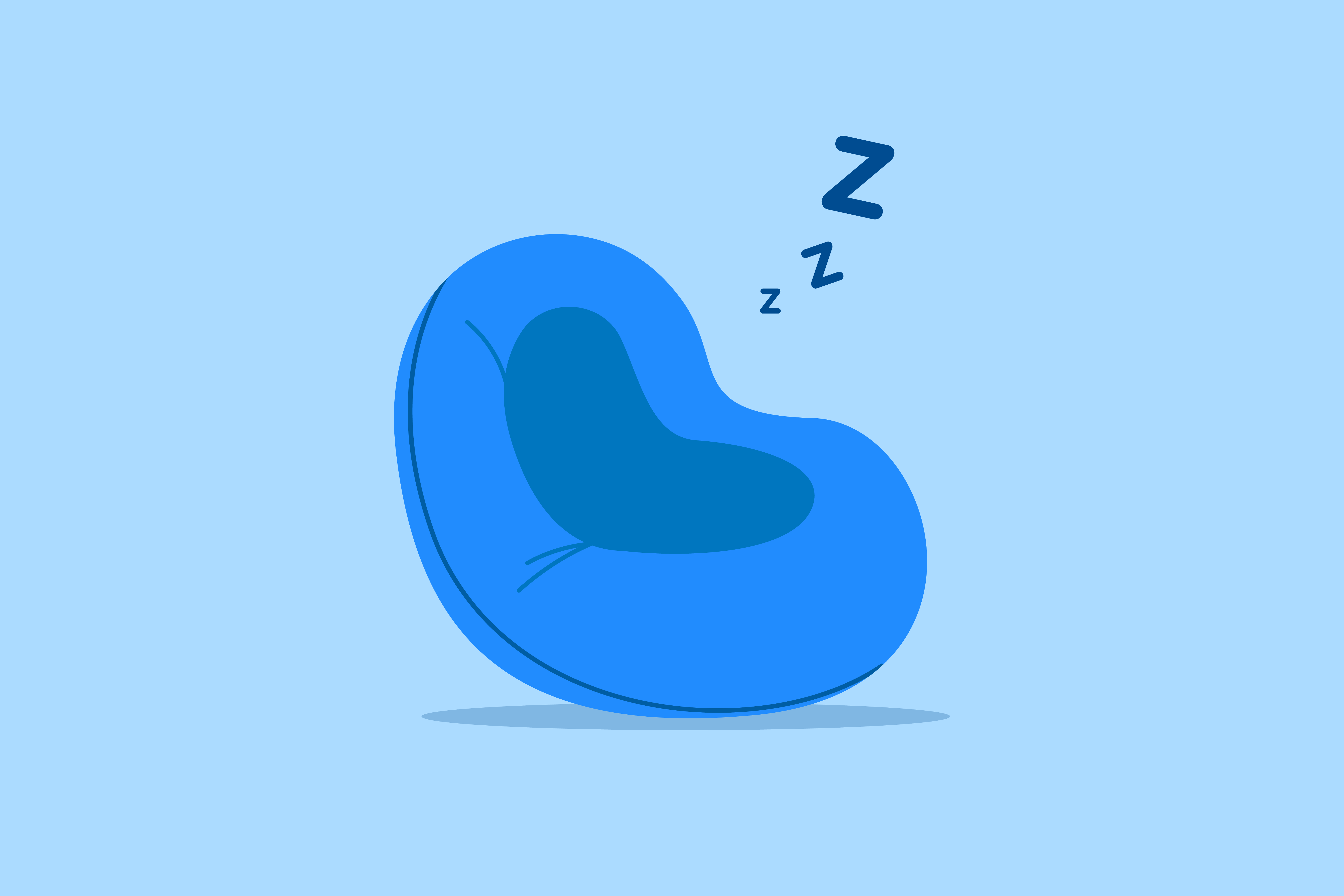Key Takeaways
Many people have slept with both duvets and comforters, but do you know the difference? They’re not the same, and knowing how they differ can affect your sleep quality and bedroom style. In this guide, we’ll break down the features, pros, and cons of each. Before you buy your next bedding, arm yourself with the knowledge to make the best choice. Let’s dive into the the differences and similarities of duvets and comforters and ensure your nights are as comfy as possible.
Understanding the Basics: Duvet and Comforter Defined
First off, let’s clarify what you’re cuddling up with at night – is it a duvet or a comforter? Understanding the basics of duvet vs. comforter is vital in serving your needs for a full night’s sleep. Let’s explore the main difference between a duvet and a comforter.
Lets start with what is a comforter? A comforter is a quilted, fluffy blanket ready to use straight out of the bag. It’s usually filled with synthetic fiber filler, which is quilted or stitched, keeping the filling evenly distributed throughout. A comforter can add a pop of color to your bedroom without additional blankets or covers.
Conversely, a duvet is more like a fluffy bag filled with down or synthetic fibers. It’s usually solid white and encased in a duvet cover, much like a pillow needs a pillowcase. This cover is removable, which means you can easily change the look of your bed without buying a whole new comforter.
In the duvet vs. comforter debate, it boils down to your personal preference. If you like to switch up the look of your bed often, a duvet might be a better choice. A comforter could be the way to go if you’re more about ease and simplicity.
Regardless of whether you choose a duvet or comforter, it’s important to remember that the comfort and warmth they provide can contribute to sleeping better at night. So, don’t sweat the small stuff and choose what feels right.
The Inner Workings: What’s Inside a Duvet
You might be curious about what’s inside a duvet: down or down alternative fill. What’s inside a duvet makes it cozy and luxurious. Down feathers, typically filled in duvets, are soft, fluffy, and extremely insulating, making them popular. They provide warmth without the weight. Alternatively, synthetic fill materials such as polyester are also used, offering a hypoallergenic and cost-effective option.
A duvet filled with down or synthetic fill is enclosed within a duvet cover. Like a pillowcase or pillow sham, the duvet cover protects the duvet inside, making it easier to clean and maintain. It also allows you to change the look of your bedding with ease.
Both duvets, whether with down feathers or synthetic fill, are designed to provide warmth and comfort. However, the feel and warmth level can vary depending on the fill materials used. The fill power, which measures the duvet’s loft or ‘fluffiness’, also contributes to its insulating properties. The higher the fill power, the warmer the duvet.
Duvet inserts, on the other hand, allow you to adjust the level of warmth to your preference. They can be easily swapped out as the seasons change.
Beyond the Surface: What Makes Up a Comforter
Next, we dive into what makes up a comforter, which typically consists of three main components: the shell, the filling, and the stitching. Beyond the surface, these factors significantly impact how to choose a comfoter for comfort and durability of comforters.
The shell, or outer layer, is often made from cotton or a blend of cotton and polyester, providing a soft and cozy surface. The type of material chosen for the shell can influence the overall breathability and durability of other bedding and the comforter.
Next, the filling provides the warmth and weight of the comforter. Higher fill power equals extra thickness and warmth, making the comforter ideal for chilly nights.
Some comforters have down filling for ultimate softness and warmth, while others use synthetic materials, a cost-effective and hypoallergenic option (check out our best hypoallergenic duvet review!).
Lastly, the stitching keeps the filling evenly distributed throughout the comforter. Box stitching, for instance, prevents the filling from shifting around, ensuring consistent warmth across the entire comforter.
When considering duvet vs. comforter pros and cons, remember that comforters are generally easier to care for, as they don’t require extra blankets or a separate cover. However, they might not offer the same level of warmth as a duvet with a higher fill power.
Comforter sizes usually align with standard bed sizes, but it’s always wise to double-check dimensions before purchasing. Some people prefer their comforters to hang generously over the sides of the bed, necessitating a larger size.
Highlighting the Differences: Duvet Vs. Comforter
There are several key differences between duvets and comforters that you’ll want to understand when making your bedding choice. The primary difference lies in their structure: a comforter is a single, quilted piece, whereas a duvet consists of a duvet insert and a duvet cover that you’ll have to purchase separately.
When highlighting the differences between duvets and comforters, it’s worth noting that they often come in bedding sets. In contrast, duvets offer the freedom to change the bedding style by replacing the cover. This makes duvets a versatile option for those who regularly switch up their bedroom decor.
Your bedding choices largely depend on your lifestyle and personal preferences. A duvet might be your go-to if you prefer easy bed-making and frequent style changes (check out our duvet sizes and dimensions guide). On the other hand, if you’re looking for a one-and-done solution ready to use immediately, a comforter could be your best bet.
The Warmth Factor: Comparing Insulation
While you’re deciding between a duvet and a comforter, it’s crucial to consider the warmth and insulation to regulate body temperature each option provides. This comparison, or ‘the warmth factor’, is vital when choosing your bedding.
Let’s start with the duvet. As you’ve probably noticed, the duvet cover inside is filled with feathers or synthetic materials, making it a perfect choice for cold nights. People who get hot when they sleep, however, might prefer duvets because they can be paired with lighter covers for warmer months. This versatility is one of the reasons why some prefer duvets.
In contrast, comforters are different. A comforter is a quilted blanket with filling evenly distributed throughout. This construction ensures a consistent layer of warmth across your bed. However, hot sleepers might find comforters too difficult to regulate body temperature during sleep in some circumstances.
Choosing the best comforter or duvet depends on your preference and sleeping habits. A duvet might be your best bet if you tend to sleep hot. Depending on the season, for example, you want to make sure you have the best temperature during summer; you can adjust the duvet cover inside for a lighter or heavier feel. On the other hand, if you want a quilted blanket that’s warm and ready to use right out of the bag, a comforter might be more your speed.
Ease of Maintenance: Cleaning and Care
As you weigh the pros and cons of duvets and comforters, it’s essential to consider how easy they are to clean and care for. This factor could influence your decision between a duvet and a comforter, especially if you prefer low-maintenance bedding.
Let’s dig into the specifics:
Duvets:
- Typically machine washable for easy cleaning.
- The cover protects the insert, reducing the need for frequent washing.
- Care instructions vary depending on the material of the insert and cover. For instance, a merino wool insert may require specific cleaning methods.
- Be sure to follow the care instructions to prolong the lifespan of your duvet.
Comforters:
- Comforters may need dry cleaning Depending on the materials used, like synthetic fibers.
- Care instructions vary, and not all comforters are machine washable.
- Frequent washing can lead to wear and tear over time.
As part of a bedding set, a comforter might match your sheets and pillowcases perfectly. However, the ease of maintaining a duvet could be more appealing if you’re someone who values easy cleaning. Remember, the right choice for you largely depends on your personal preferences and lifestyle. Think about your routine, mattress size, and how much effort you will put into maintinance and other care tips. By considering these aspects, you’ll make the best decision for your needs.
Practical Considerations: Choosing Between a Duvet and Comforter
You’ve looked at the basics and the maintenance, and now you need to delve into the practical considerations of choosing between a duvet and a comforter. Let’s start with bed size (Here is our mattress sizes chart for reference). This is a crucial factor in getting the proper fit. Typically, comforters are larger than duvets and designed to hang over the sides of the bed. Duvets, on the other hand, are meant to fit exactly the size of the mattress.
Next, consider the desired look. A comforter can give your bed a layered look for a great addition to a DIY bedroom makeover, often in a matching set with pillowcases and sheets. This might be the perfect option if you prefer a coordinated aesthetic.
However, if you lean towards a more streamlined look, a duvet with its sleek cover might be the right choice for you. Consider how it might drape over your mattress thickness.
Another practical consideration is the need for an additional cover. With a duvet, you’ll require a separate cover that can be removed and washed, saving you from cleaning the entire duvet. This can be a significant advantage if ease of cleaning a comforter or duvet is a priority for you. Conversely, comforters don’t require an additional cover and can be used as is.
In the end, choosing between a duvet and a comforter comes down to your personal preferences and practical considerations. Consider your bed size, cleaning capabilities, and aesthetic preferences to make the best choice for you.
Personal Preferences: Factors to Consider When Buying
When buying a duvet or a comforter, three key factors you’ll want to consider are your own personal style, budget, and cleaning preferences. In the ‘duvet vs. comforter: what’s the difference?’ debate, your preferences and factors to consider when buying play a crucial role.
Firstly, your style and design aesthetic will guide you towards a duvet or a comforter. Duvets, from the French word for ‘down,’ are often sold separately from their protective layer, the duvet cover. This allows you more style options, as you can change your bedroom decor simply by switching out the duvet cover separately.
Conversely, comforters offer a simpler, one-piece solution and are often sold as part of sheet sets. This makes them an easy choice if you prefer a cohesive, matching look.
Secondly, your budget will be a deciding factor. While both duvets and comforters can be found at the same price point, remember that duvet covers are typically sold separately, which can add to the overall cost.
Lastly, consider your cleaning preferences. With their removable covers, Duvets can be easier to clean than comforters. However, some people find the process of removing and replacing a duvet cover to be a hassle.
Frequently Asked Questions
What is better, a duvet or a comforter?
It all depends on your preferences. Choose a duvet if you want a warmer top blanket to wash and quickly change the look. A comforter can be more appealing if you prefer a straightforward, ready-to-use cover.
Can I use my comforter as a duvet?
Once you purchase a comforter, it is ready to use and does not require a duvet or other type of cover. On a comforter, though, you can use a duvet cover. Some folks will do this to prevent their comforter from becoming soiled. A comforter can serve as the duvet cover’s insert.
Do hotels use duvet or comforter?
In most hotels, comforters are preferred to quilts or duvets. Hotels frequently offer an additional blanket to use with the comforter, though. There are also many kinds of sheets hotels use.
Is a duvet or comforter better for hot sleepers?
Compared to synthetic materials, a goose-down duvet filling has three to four times more air circulation and is naturally breathable, making it easier for sweat to evaporate. Select a lightweight, low-top duvet if you also want a cooling duvet. The ideal duvet for hot sleepers is 2.5 tog.
Conclusion
So there you have it! Choosing between a duvet and a comforter depends on your preferences, ease of care, and desired warmth. Both offer unique benefits and understanding these can help you make the best decision for your comfort and style needs.
Remember, your bedding plays a big role in your sleep quality, so take the time to choose wisely, whether it’s a duvet, quilt, comforter or blanket. Now, you’re equipped with the knowledge to ensure your nights are as cozy as possible.
About the author
Eric Ridenour is a health and wellness writer with a strong focus on sleep and nutrition. With a background in health science and psychology, Eric has a deep understanding of the connection between sleep and overall well-being. His expertise has been sought by various businesses and individuals, and his work has been featured in reputable publications such as Thrive Global, Drug Report, and Authority Magazine. Eric's commitment to promoting better sleep and comprehensive wellness is evident in his writing and consultations. He is a published author working on his second book.
View all posts





